Federal, State Governments Aid New Yorkers


UPDATE:
Wednesday, March 25 — The expected passage of the latest COVID-19 emergency package will deliver $40 billion-plus to New York, the city, and its citizens. In reaching an agreement, the Senate will help New York address the novel coronavirus crisis, support local communities, and most importantly put workers first.
“This is not a moment of celebration but rather one of necessity,”U.S. Senator Chuck Schumer said. “The more than $40 billion dollars of additional help on the way to New York is essential to save lives, preserve paychecks, support small businesses, ensure public transit, and much more. These critical dollars will inject proverbial medicine into our state, city, and localities like on Long Island, to deliver much-needed resources right now that can help combat the coronavirus. Like all compromise legislation, this bill is far from perfect, but it now does much more for this state, its people, and its future than where we began.”
This relief package includes a dramatic and historic expansion and reform of the unemployment insurance program, something Schumer called “unemployment insurance on steroids.” The extended and expanded program increases the maximum unemployment benefit amount by $600 per week above one’s base unemployment compensation benefit and ensures that workers who are laid off or out of work, on average, will receive full pay for four months. It ensures all workers are protected whether they work for businesses small, medium, or large, along with self-employed, freelance, and gig workers. The $260-billion-dollar plan will deliver at least $15 billion directly to New York. Payments of $1200 for individuals and $2400 for couples accounts for another $15.5 billion to New York.
Second is a Marshall Plan for hospitals and other medical facilities to provide necessary care during the pandemic. Given that New York is the national epicenter of the pandemic, billions of the $150 billion national plan will begin flowing to New York right away. The money will be available to fund a massive new grant program for hospitals and health care providers, personal and protective equipment for health care workers, testing supplies, increased workforce and training, new construction to house patients, emergency operation centers, and more. Additional funding is also dedicated to delivering Medicare payment increases to all hospitals and providers.
A special program was also negotiated to deliver relief to state and local governments to help stabilize the ones hardest hit by the virus, like New York City and on Long Island. An expenditure relief fund of roughly $150 billion dollars will deliver at least $5.8 billion to New York, with more than a $1.4 billion going to NYC and about half-a-billion to Long Island’s Nassau and Suffolk County budgets.
An allocation of $25 billion dollar will help preserve America’s transit systems, particularly in New York and in New York City. It will deliver $4.35 billon to New York, $3.8 billion of that exclusively for the MTA. These dollars can be used to supplement revenues due to steep declines in ridership and to cover additional costs of coronavirus-related cleaning products and labor.
Another $375 billion will go toward forgivable loans and grants to small businesses and nonprofits so they can maintain existing workforces and help pay other expenses like rent, a mortgage, or utilities. New York, with its 2.2 million small businesses and tens-of-thousands of nonprofits can expect to see billions of dollars once companies and organizations begin to apply for those funds, Schumer said. Small businesses in the state that currently have over 19,000 existing Small Business Administration loans will also have relief from the burden of paying those loans with a new policy, instead paying the principal, interest, and fees for a six-month period.
Finally, several “emergency appropriations” totaling $180 billion were also negotiated that range from billions for hard-hit airports; expanded benefits to Supplemental Nutrition Assistance Program (SNAP); increased Community Development Block Grants, which helps all our municipalities; funding for child care, of which New York would receive an additional $162 million; nutrition for seniors,; nearly $1 billion dollars to help heat homes when income becomes a problem; and $1.5 billion for the United States National Guard to support to the hardest-hit states and territories, like New York, where approximately 2200 members have been activated; amongst other things.
Update:
Wednesday, March 25 — The federal government urged all New York City residents who have fled the epicenter to self-quarantine for at least the next two weeks to stop the spread.
“To everyone who has left New York over the last few days, because of the rate of the number of cases, you may have been exposed before you left,” Dr. Deborah Birx said at a White House press briefing, adding that “everybody who was in New York should be self-quarantining for the next 14 days to ensure that the virus doesn’t spread to others.”
Read more about how East Enders are angry over influx of residents.
ORIGINAL:
Tuesday, March 24 — New York has become the area not only hit the hardest physically by COVID-19, but economically as well.
Governor Andrew Cuomo said March 23 the number of new cases in New York rose 25 percent overnight, to make it the most infected state in the nation. At press time March 24, he said the number of those infected is doubling every three days, and that he expects the apex of the pandemic could hit New York 14 to 21 days from now. The number of confirmed novel coronavirus cases statewide has jumped to over 25,000, with New York City harboring the bulk of them — almost 15,000 cases. Nassau County has close to 3000 and cases in Suffolk are nearing 2000. Those numbers are more than 10 times greater than reports on the number of individuals infected in California and Washington state.
On March 20, the governor signed a 10-point policy stating all nonessential businesses statewide must close in-office personnel functions effective 8 PM Sunday, March 22.
Restaurants, bars, gyms, movie theaters, casinos, auditoriums, concert halls, and others were also ordered to close under the restrictions on any gathering with 50 or more participants. Bars and restaurants can still offer takeout and delivery.
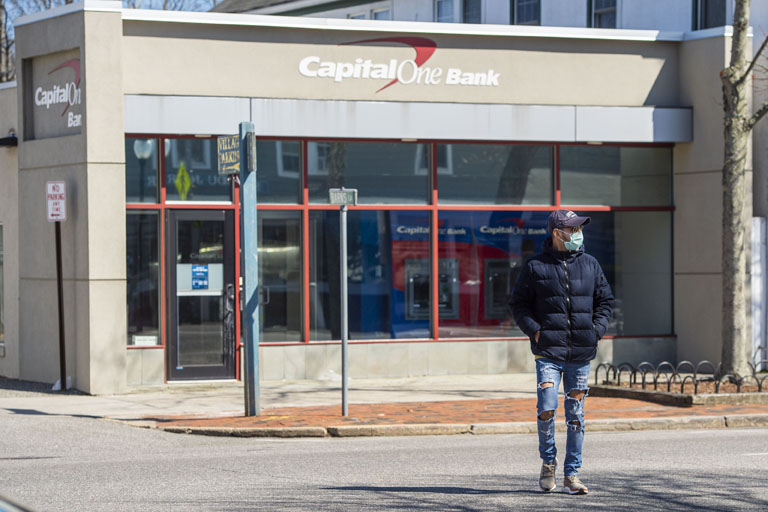
This was all an effort — through social distancing — to try to slow the spread, but these changes and mandates have hit New Yorkers just as hard, if not harder than the novel coronavirus has. For those struggling and wondering how to keep their businesses afloat, help is on the way.
The U. S. Small Business Administration issued an emergency declaration a day before the executive order announcement that economic injury disaster loans are available to small businesses and nonprofit organizations in the state and Suffolk County.
The Small Business Administration economic injury disaster loans offer up to $2 million in assistance per small business and can provide vital economic support to help overcome the temporary loss of revenue. These loans may be used to pay fixed debts, payroll, accounts payable, and other bills that can’t be paid due to COVID-19’s impact.
“Over 99 percent of businesses in the entire country are small businesses, and, employing nearly 50 percent of our entire workforce,” Congressman Lee Zeldin said. “The health and vitality of our local small businesses are critical to our entire way of life. This critical support for our local small businesses will help ensure that they and the Long Islanders who rely on them emerge stronger than ever on the other side of the coronavirus outbreak.”
Aid has also been extended to many workers — state legislators approved bills on paid sick leave.
The sick leave measure addresses access to leave and disability benefits for quarantined individuals, and guarantees paid sick leave not related to the virus, which is relative to the size of a business.
“I just signed into law legislation to provide immediate relief to working New Yorkers whose lives are being turned upside down by COVID-19,” Cuomo said in a release March 18. “No one should have to make the impossible choice between losing their job or providing for their family and going to work, especially during this pandemic.”
Also on March 20, while acknowledging how closing businesses will hurt the economy, Cuomo ordered a moratorium on commercial and residential evictions for at least 90 days.
With the Department of Motor Vehicles also closing, Congressman Tom Suozzi (D-Glen Cove) is fighting to delay the October 1 deadline for travelers to obtain REAL ID-compliant driver’s licenses, which will soon be needed to board domestic and international flights.
During the closure, all in-office DMV reservations, previously scheduled road tests, and vehicle appointments have been canceled. All licenses, non-driver IDs, and registrations with an expiration date of March 1, 2020 or later will be extended. Online, the DMV is still processing certain transactions relating to driver’s license, permit, and non-driver ID renewals; driving penalties and tickets; vehicle transactions; DMV records; and businesses and organizations. Currently, New Yorkers are still required to keep up with inspections. Auto garages and repair shops are deemed “essential” businesses by the state and can remain open.
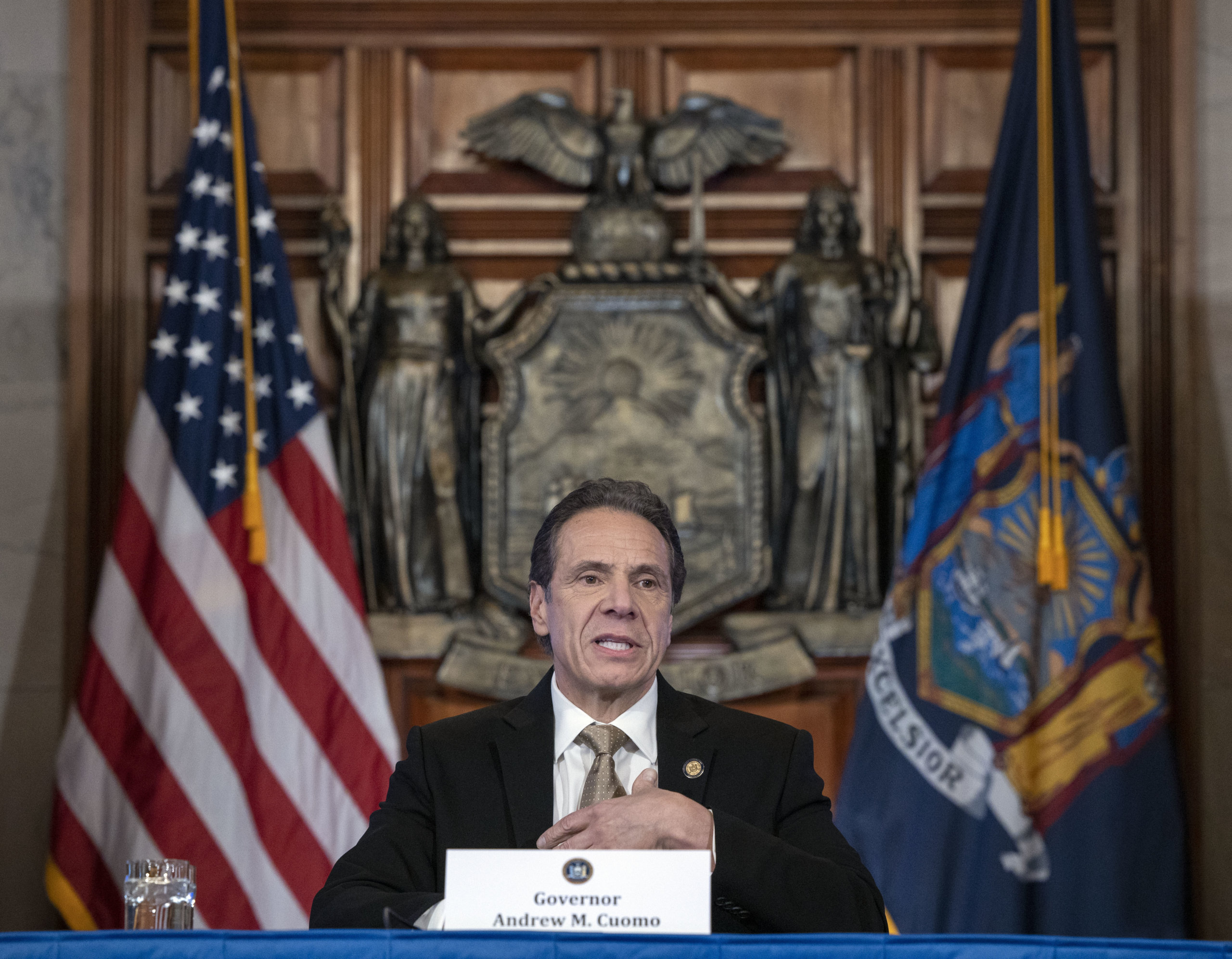
The National Fight
Congressional leaders are trying to negotiate a bipartisan agreement on a $1.4-trillion economic stimulus package, as they pushed for a potential vote on March 23 amid growing concerns on Capitol Hill about the spread of COVID-19 among lawmakers. Senator Rand Paul (R-Kentucky) became the first U.S. senator to test positive, and two U.S. House of Representatives members followed his Sunday diagnosis.
A key component of the proposed bill calls for providing most Americans with $1000 and $500 for dependent minors. The average direct deposit or check for a family of four will be about $3000.
Treasury Secretary Steven Mnuchin did not specify what income requirements will be in place to qualify, but Senate Republicans have pushed for a $75,000 income cap per individual to receive the money or $150,000 per couple.
The bill also proposes aid to small business owners, potentially providing retention loans to pay workers for two weeks. The companies would need to retain employees, and would get some overhead money, with the prospect of the loans being forgiven so long as workers are not laid off.
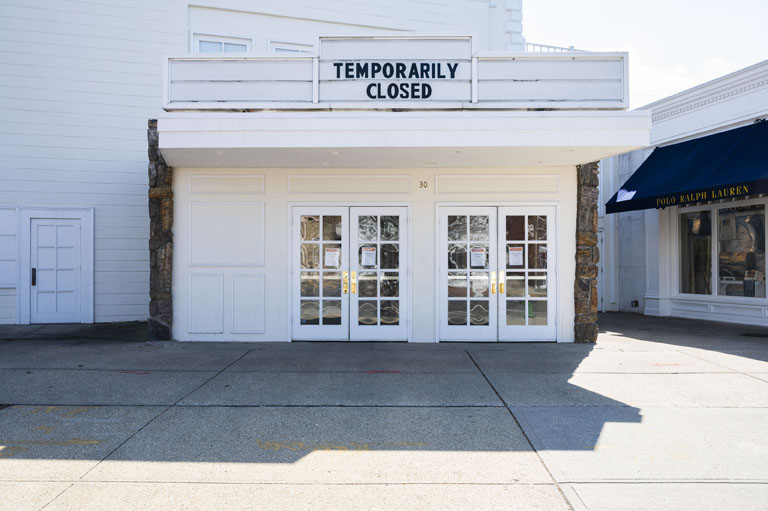
Under the proposed bill, the government will provide enhanced unemployment relief for people laid off, and a $4-trillion liquidity injection to support the economy. Mnuchin said officials are negotiating what could amount to a $110-billion infusion to hospitals and medical professions.
In a letter to House Speaker Nancy Pelosi sent over the weekend and signed by more than 60 other lawmakers, Suozzi requested any measure that emerges from negotiations repeal the $10,000 cap on state and local tax deductions, known as SALT.
“The cap is unfair to moderate-income Americans and disproportionately harmful to taxpayers in states like New York, New Jersey, Massachusetts, and California that have been ravaged by the coronavirus pandemic,” Suozzi wrote in the letter.
Congress also passed a measure, called the Families First Coronavirus Response Act, to provide federal funding for paid sick leave for thousands of Americans grappling with the disease. It also ensures free testing for COVID-19.
Congress passed the first federal emergency funding bill March 4, which allocated $8 billion for state and federal efforts, including the purchase of medical supplies and research for potential vaccines and treatments to combat the virus.
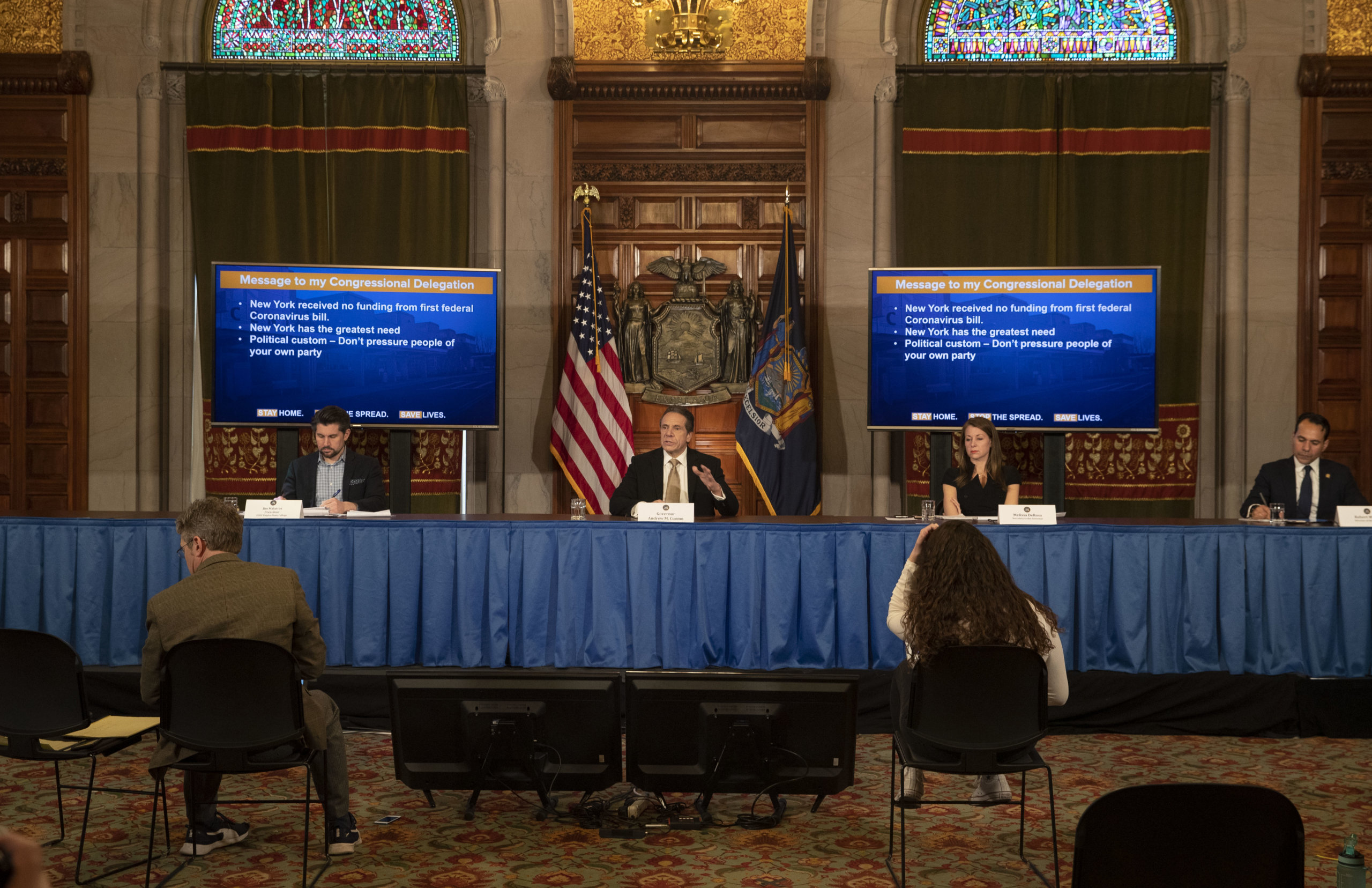
Space For Rise In Cases
The governor asked for and received needed equipment for hospitals, including more than 169,000 N-95 masks, 430,000 surgical masks, 176,000 gloves, 72,000 gowns, and 98,000 face shields. But, during a press briefing March 24, Cuomo called on the federal government to release a stockpile of 20,000 ventilators needed for people in respiratory distress.
“I think the federal government should order factories to manufacture masks, gowns, ventilators,” Cuomo said. “The essential medical equipment, that’s going to make a difference between life and death.”
Besides supplies, there is also a growing need for hospital beds.
On March 23, Cuomo mandated hospitals increase capacity by 50 percent to account for the growing number of cases. New York is now also ready for U.S. Army Corps of Engineers to start construction at Stony Brook University, SUNY Westbury, the Westchester County Center, and Jacob K. Javits Center for Federal Emergency Management Agency-erected hospital beds.
FEMA will be putting in place 250-bed, fully-equipped, and fully-staffed 40,000-square-foot facilities at all four locations. There will be about 320 federal staff members at all four hospitals, Cuomo said.
“They’ve reviewed these sites. I approve it,” the governor said. “I approve it on behalf of the state of New York, and now we just have to get it done and get it done quickly.”
Cuomo said construction will begin this week, and could be completed in 10 days. He also said while President Donald Trump has moved forward with voluntary partnerships with manufacturers, he could invoke the Defense Production Act to mandate companies make masks, gowns, personal protective equipment, and ventilators, and even get the hospitals built faster.
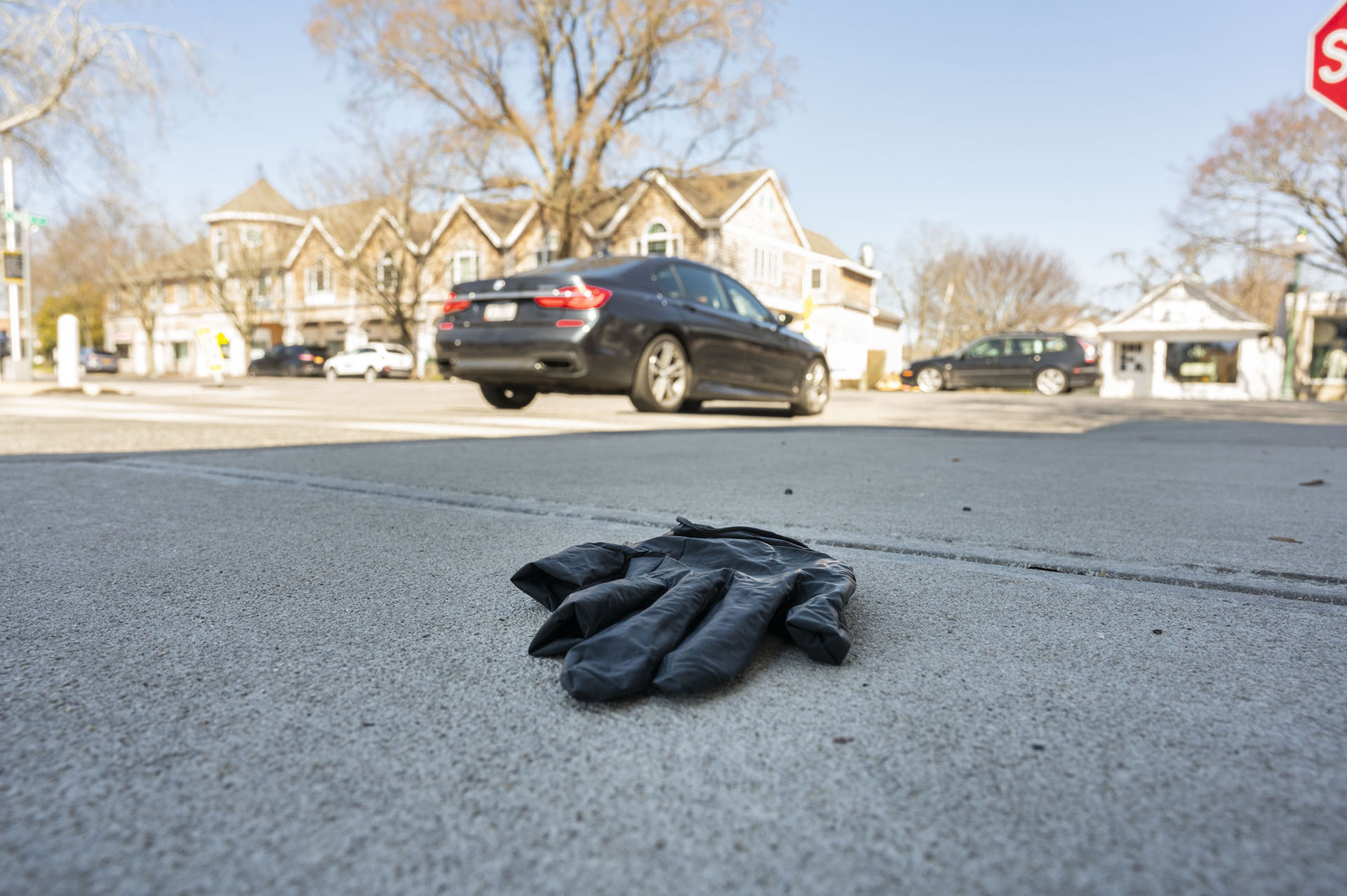
The state has tested more than 80,000 people, accounting for a quarter of all tests nationwide, according to Cuomo, and the number of coronavirus cases is expected to grow as more get tested. The governor urges calm as numbers continue to rise.
“This is going to get much worse before it gets better, but the level of anxiety is not connected to facts, there is no chaos, the net effect — many people will get the virus, but few will be truly endangered,” Cuomo said. “Life is going to be quieter for a matter of months. Realize the timeframe we’re expecting, make peace with it, and find a way to help each other through this situation because it’s hard for everyone. But everything will function. Life will function.”
Unfortunately, Cuomo said, there is still a misconception, especially among young people he’s seen gathering in parks and on playgrounds, that restrictions aren’t to be taken seriously. He pleaded that everyone in the state self-isolate, follow proper social-distancing protocol, continue to wash their hands, wear gloves when using gas pumps, and only pick up what’s needed from the shelves at supermarkets, among other precautions to slow the spread of COVID-19.
They believe “they cannot get coronavirus or that they can only spread the virus if they are symptomatic,” Suffolk County Executive Steve Bellone said. “That is false — plain and simple. Residents should stay home as much as possible.”
Suffolk County reported the following confirmed cases as of March 23: 210 cases in Huntington; 208 in Islip; 164 in Babylon; 149 in Brookhaven; 84 in Southold; 70 in Smithtown; 18 in Riverhead; 14 in Southampton; 10 in East Hampton; and one in Shelter Island. Eighty-eight locations are unknown. The county death toll is up to 13. There were 183 deaths reported by press time statewide.
Five Peconic Landing residents diagnosed with COVID-19 died over the past week. Three were residents of The Shores for Skilled Nursing and one was a resident of Harbor South for Memory Support. The Greenport life care and retirement community was hit hard after a “per diem” worker had tested positive for the novel coronavirus on March 10. By March 12, it was reported two more staff members had tested positive.
Again, Cuomo said he’s hoping spirits can in some way remain lifted to keep each other’s heads above water during a difficult time for the entire world.
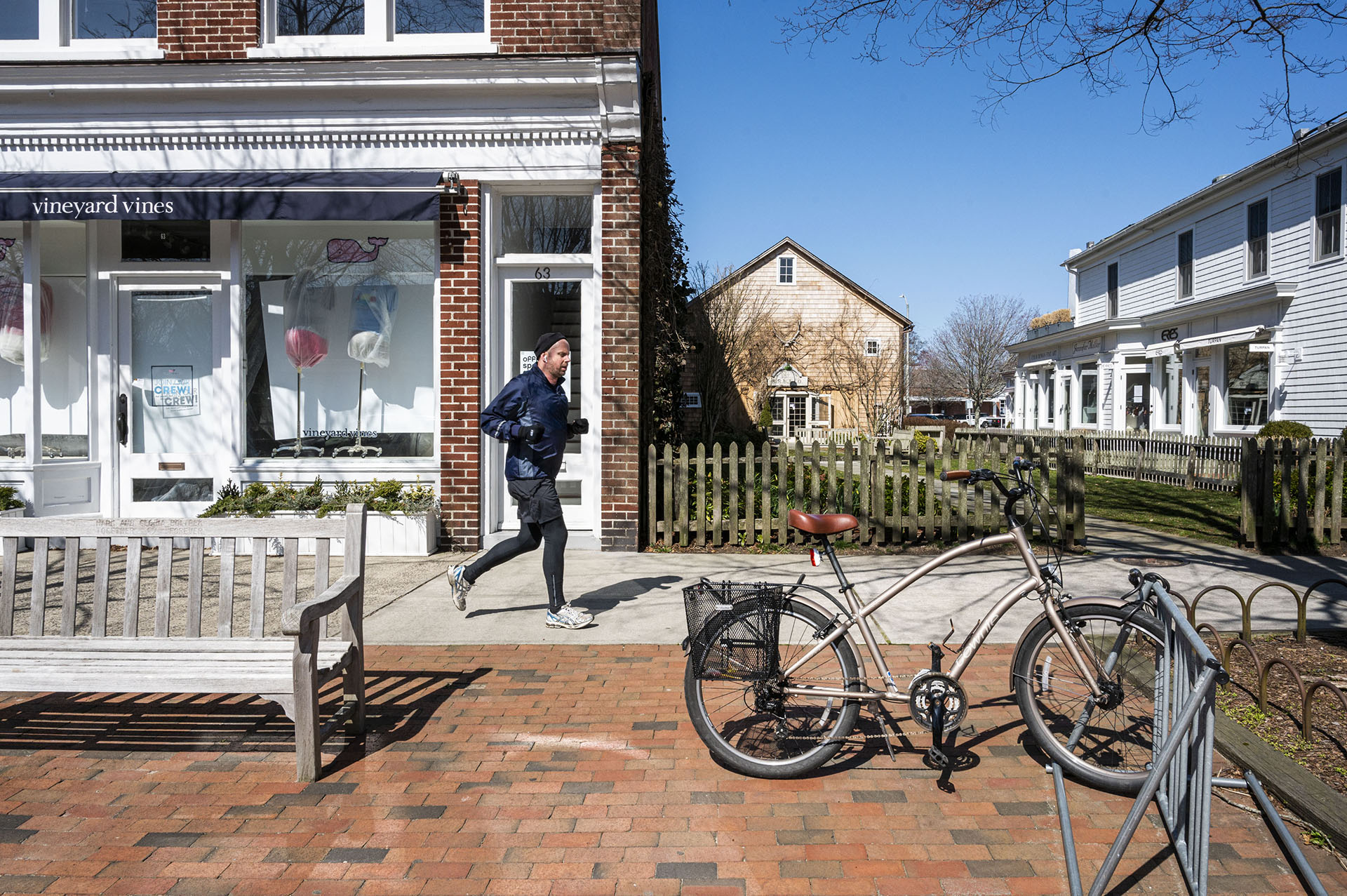
“Don’t underestimate the emotional trauma and don’t underestimate the pain of isolation. It is real,” he said. “This is not the human condition — not to be comforted, not to be close, to be afraid — and you can’t hug someone. But America is America because we overcome adversity and challenges. That’s how we were born. That’s what we’ve done all our life. We overcome challenges and this is a period of challenge for this generation. And that’s what has always made America great and that’s what going to make this generation great. I believe that to the bottom of my soul. We will overcome this and America will be the greater for it. And my hope is that New York is going to lead the way forward.”
Additional Resources:
• Small business owners who wish to learn more, determine eligibility and apply, for the U. S. Small Business Administration disaster loans should visit SBA.gov/disaster.
• Online transactions, including license renewals, are available on the New York Department of Motor Vehicles website at www.dmv.ny.gov.
• Price-gouging can be reported to the New York State Division of Consumer Protection at 1-800-697-1220. Also, be cognizant of purchasing home-made products, and look out for scammer-sent emails or text messages that are non-World Health Organization or Centers for Disease Control and Prevention-originated claiming to have new information on COVID-19. Amazon has had to remove millions of fake accounts claiming to sell products like toilet paper and cleaning supplies, so ensure there are reviews of the items you’re looking to purchase, or check a company’s background.
• For assistance in finding child care, contact the Child Care Council of Suffolk hotline, 1-646-926-3784. The day care center is prioritizing child care for essential workers, including health care workers, first responders, grocery and pharmacy employees, and others.
• For all other information state and federal, visit www.governor.ny.gov and www.usa.gov/coronavirus.
desiree@indyeastend.com



